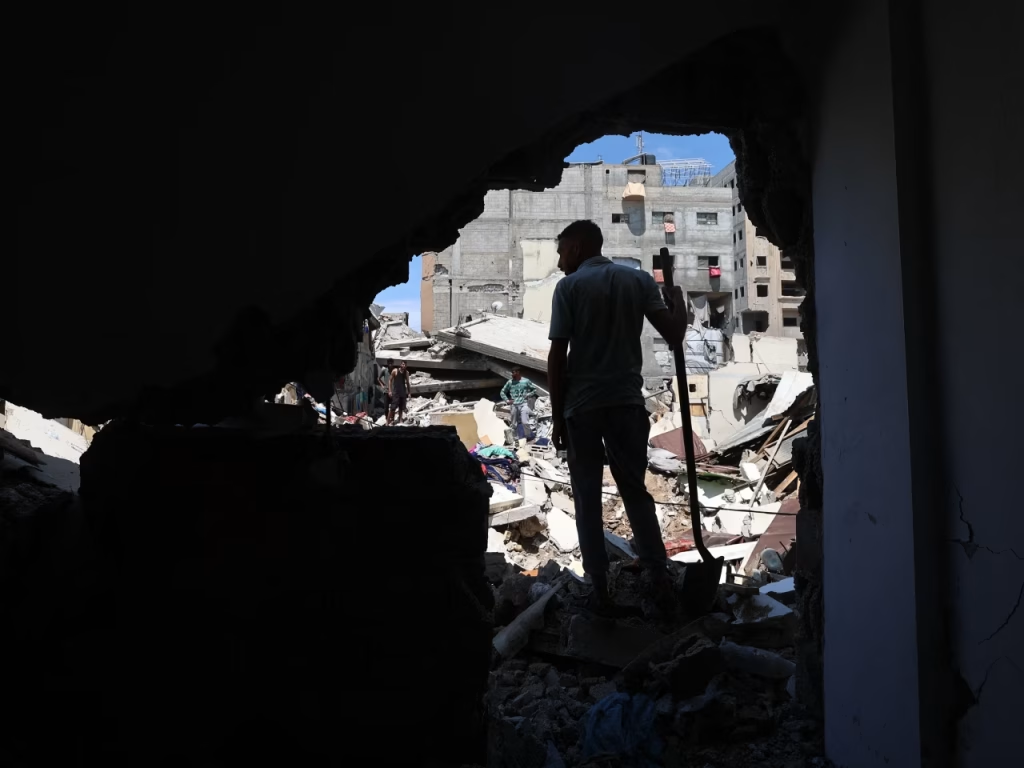In a major announcement on Friday morning, U.S. Ambassador to Israel Mike Huckabee confirmed that Israel will not participate in the distribution of humanitarian aid in the Gaza Strip. Instead, Israel’s role will be focused solely on security coordination within the area.
Speaking at the U.S. Embassy in Jerusalem, Ambassador Huckabee emphasized President Donald Trump’s commitment to ensuring that aid reaches Gazan civilians safely and efficiently, without interference from militant groups like Hamas, which he criticized as “incapable and unwilling” to provide for its own people.
“There is a desperate need for humanitarian aid in Gaza,” Huckabee stated. “But Hamas is not capable or willing to provide it.”

The ambassador revealed that the United States has worked with several international partners to establish a new mechanism for delivering aid to Gaza. While he did not name the countries or organizations involved, Huckabee noted that they have committed funding and agreed to participate—though many prefer to remain unnamed for now.
READ ALSO: IDF Eliminates Senior Islamic Jihad Commander in Targeted Nablus Operation (VIDEO)
Crucially, Huckabee confirmed that Israel will not be involved in the operational aspect of the aid delivery, reflecting a deliberate decision to separate humanitarian logistics from regional politics and security concerns.
“There are nonprofit organizations that will be a part of the leadership,” he said. “Other organizations and governments will also need to be involved, though not Israel.”
READ ALSO: Mass Panic Erupts on Tel Aviv Beach After Houthi Missile Launch Toward Israel
According to Huckabee, this new system is not dependent on military activity and is expected to launch soon, with the goal of providing neutral, uninterrupted humanitarian support. The ambassador expressed optimism, stating that there has already been a “good initial response” from those involved.

This move marks a strategic shift in how humanitarian assistance is managed in conflict zones, especially in an environment where civilian suffering is compounded by political and military tension.
As the Gaza humanitarian crisis continues to deepen, the success of this international mechanism—backed by the U.S. but excluding direct Israeli involvement—may set a precedent for future aid models in volatile regions.
Discover more from Scoop Hub
Subscribe to get the latest posts sent to your email.

